Projects
Wildlife Speaker Series
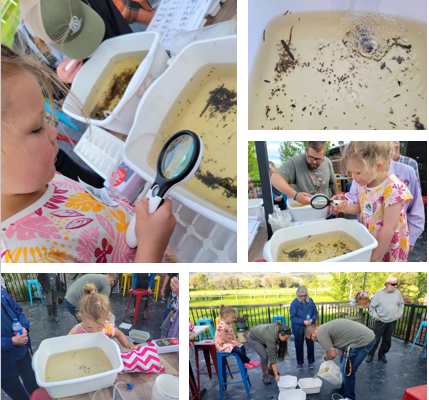 2024 Big Hole Event
2024 Big Hole Event
Join us for a free and informative presentation on grizzly bears! Biologist Cecily Costello, PhD, MT Fish, Wildlife & Parks will present.
Grizzly Bears
Wednesday, July 17, 2024
Dinner at 6:00 pm, Presentation at 7:00 pm
Divide Grange Hall – Divide, MT
The presentation will be preceded by a potluck meal, with the main dish of elk burgers provided by BHWC (donated by Brian Wheeler, Big Hole River Foundation/BHWC Board Member). Please bring a side dish, salad, or dessert!
About the Wildlife Speaker Series
The Big Hole Watershed Committee has co-sponsored a Wildlife Speaker Series event each summer since 2013. The purpose of the Wildlife Speaker Series is to increase awareness about our less controversial wildlife and engage with our local community through walks, tours, and presentations. Local conservation groups join together to share interesting wildlife facts at local historical and conservation-oriented venues. These events provide a social opportunity for learning and foster relationships with community members and wildlife experts.
A group of committed, local conservation organizations (listed below) carries the torch to keep the series alive.
Help Keep the Series Alive
Click the green donate button at the bottom of the page to help support the series!
People & Organizations Involved (2024)
Beaverhead Conservation District/Watershed Committee
Madison Valley Ranchlands Group
Jack Creek Preserve Foundation
Ruby Valley Conservation District/Watershed Council
Project Photos
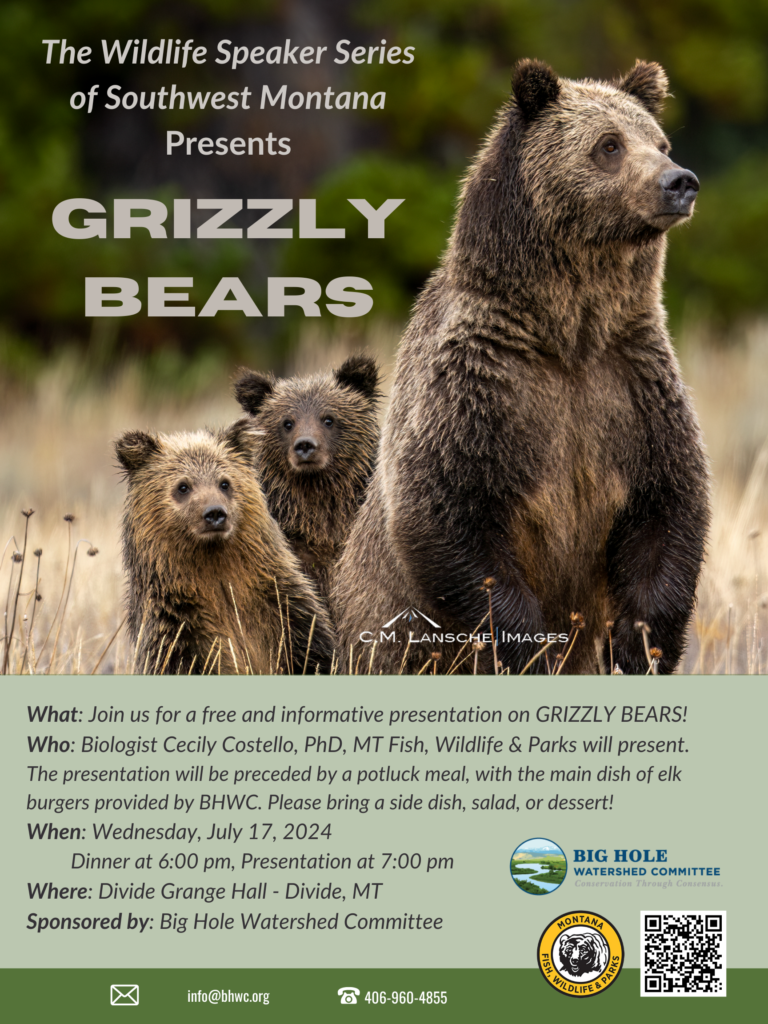
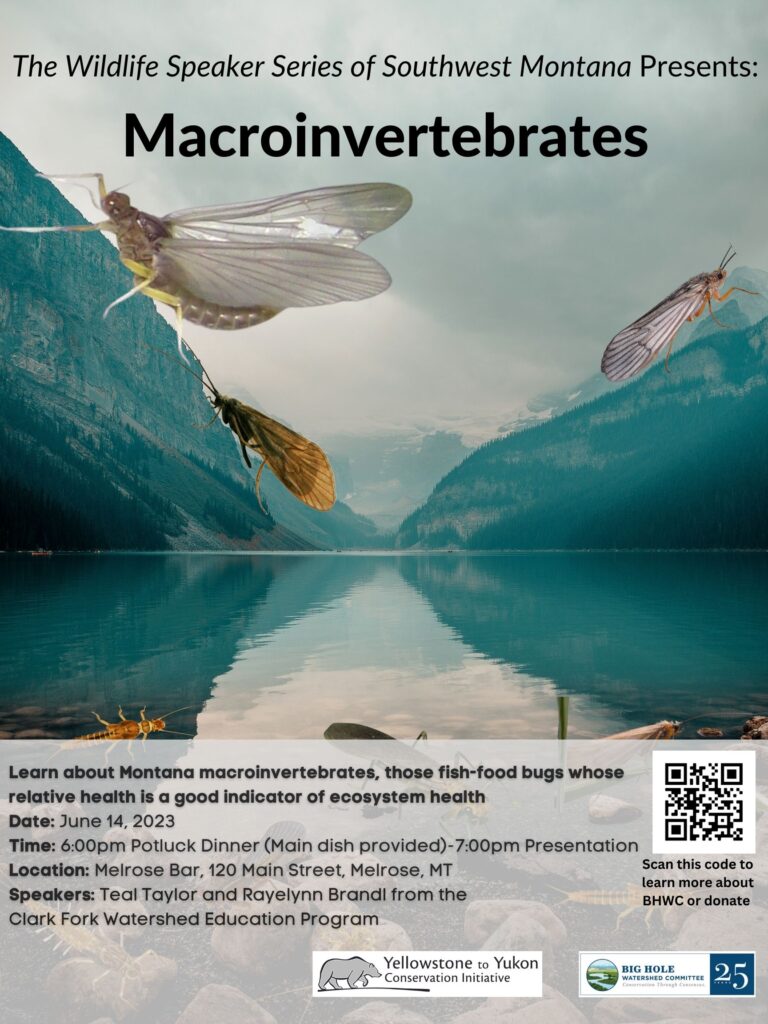
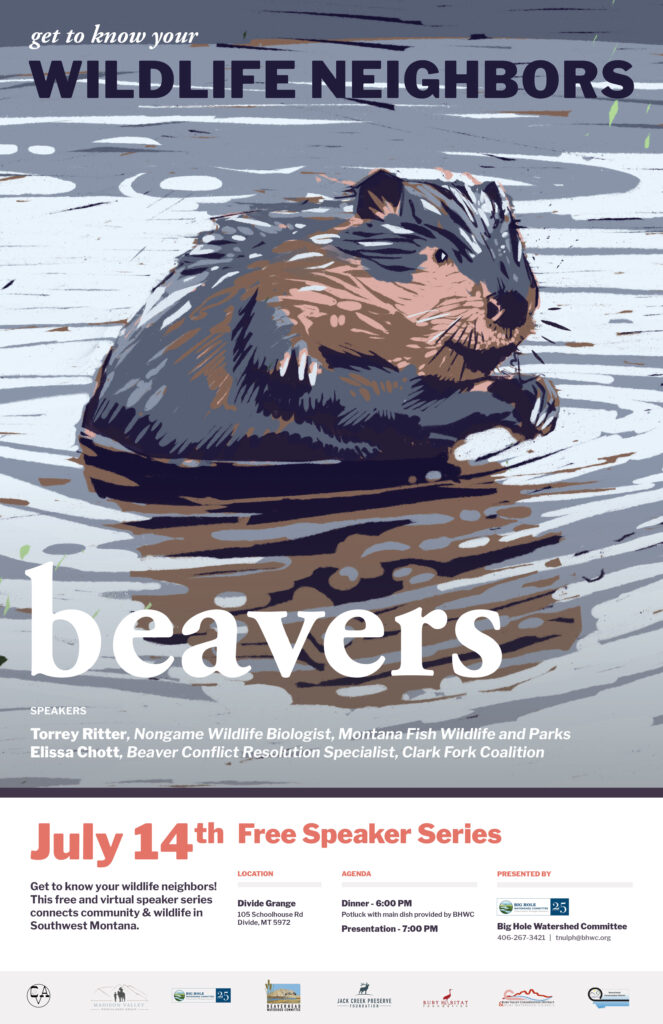
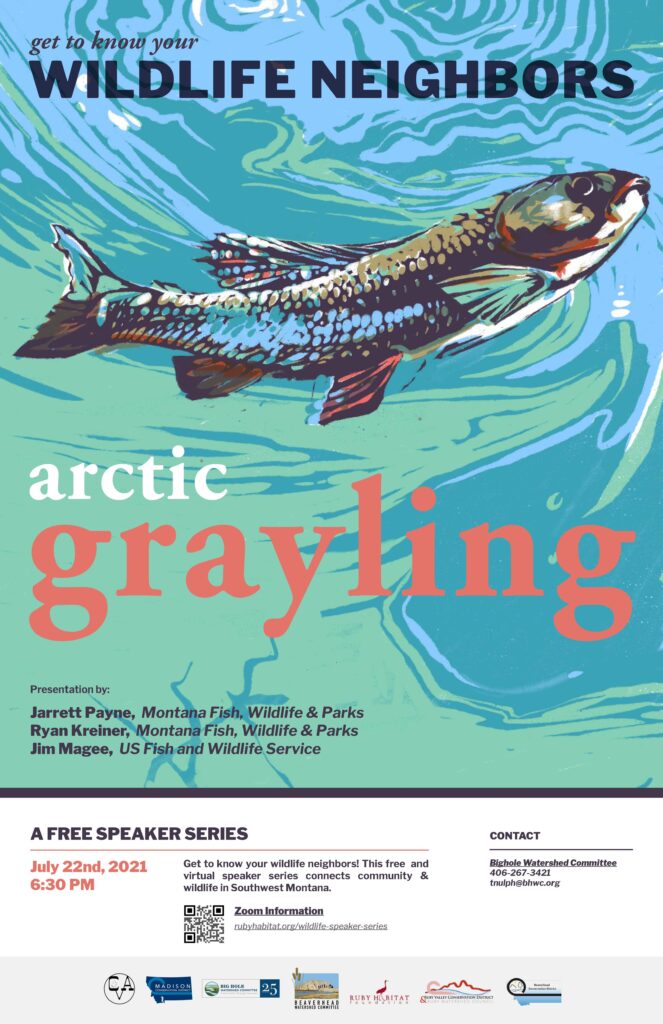
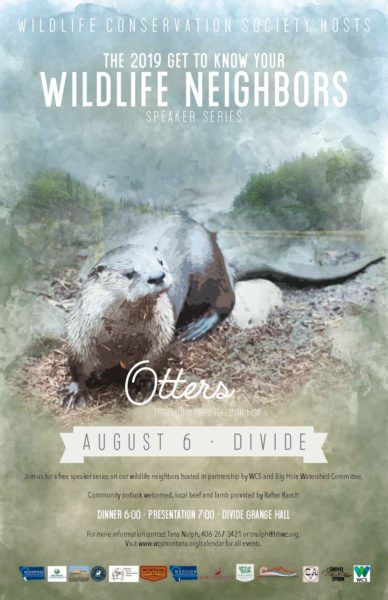
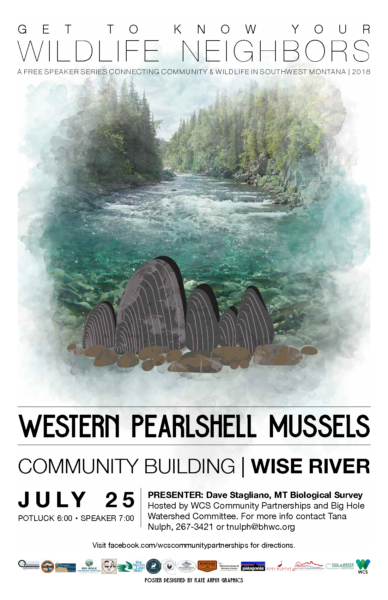
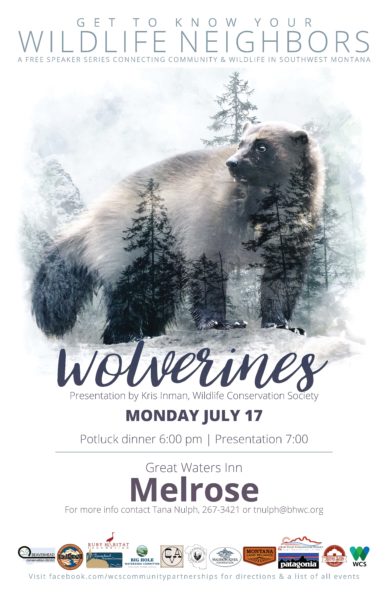
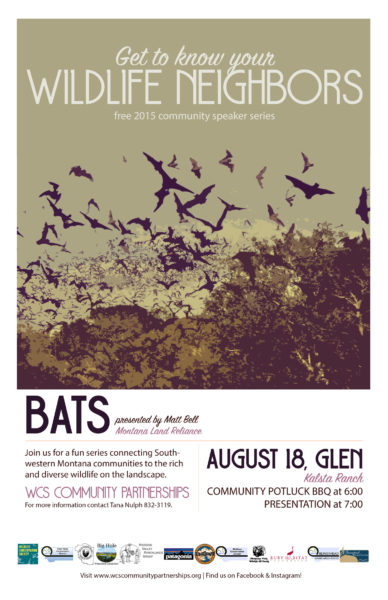
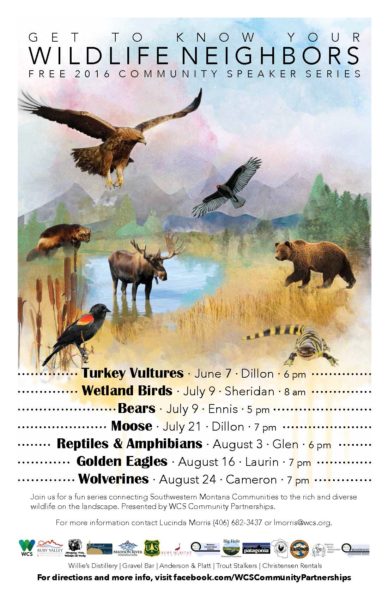
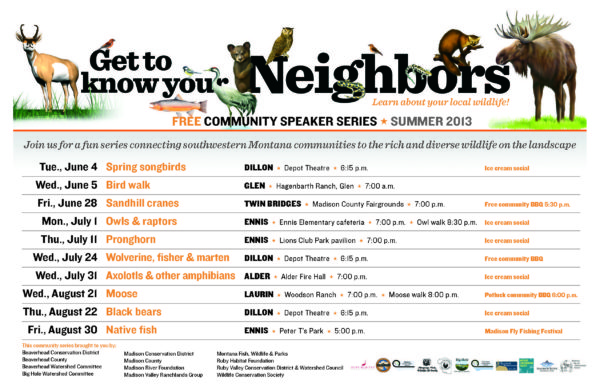
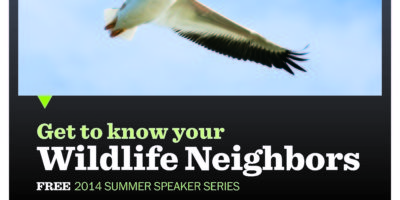
Project MAP
Status
Ongoing
Type
Education/Outreach
